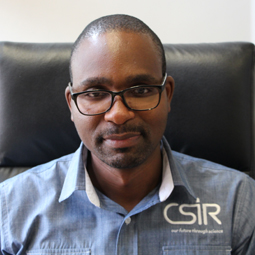UP and CSIR sign a collaboration agreement on smart transport, cities and environments
Joint: Media Release
The University of Pretoria (UP) and the Council for Scientific and Industrial Research (CSIR), an entity of the Department of Science and Innovation (DSI) have signed a Memorandum of Agreement (MoA) on 22 July 2020, to collaborate in the area of smart transport, cities and environments.
Joint: Media Release
The University of Pretoria (UP) and the Council for Scientific and Industrial Research (CSIR), an entity of the Department of Science and Innovation (DSI) have signed a Memorandum of Agreement (MoA) on 22 July 2020, to collaborate in the area of smart transport, cities and environments.
According to Professor Wynand Steyn, Head of the Department of Civil Engineering in UP’s Faculty of Engineering, Built Environment and Information Technology (EBIT), “the cooperation means that UP can focus on creating a pipeline of potential researchers in these areas.” He explained that smart transport, cities and environments are part of an integrated system that encompasses digitised transportation systems, parking management, reduced traffic congestion and addressing environmental problems. The aim is to reduce energy consumption levels in transportation, maximise productivity in industry and provide a higher quality of life for citizens.
Prof Steyn explained that “in order to work towards smart cities, there is a need to develop researchers with advanced skills in robotics, artificial intelligence, the Internet of Things and satellite technology. To this end, researchers will be trained through complementary skills at UP and the CSIR.” This will further develop the skills required to design, construct, maintain and rehabilitate the extensive roads network in the country that is vital for accessibility and mobility of its communities, and in support of economic opportunities.
CSIR Executive Cluster Manager: Smart Mobility, Kenny Kistan said: "The Smart Mobility Cluster of the CSIR sees the collaboration with the Engineering Faculty of UP, as an integral component of its strategic initiative to address transport and infrastructure challenges in the country and the continent. This will undoubtedly contribute to improving and advancing economic activity. This partnership will enable us to share our expertise to accelerate technology solutions in South Africa’s smart mobility sector.”
“Besides, this initiative is a positive start to co-create scientific knowledge and multi-faceted technological innovation and solutions which is in line with our implementation plan and is linked to CSIR’s mandate to support and strengthen industrial activity in the country,” said Kistan.
This collaboration includes the cooperative use of the CSIR laboratories and UP’s Engineering 4.0 campus. These facilities complement each other and allow for larger research projects to be executed, with the involvement of postgraduate students. The collaboration also entails jointly working towards the establishment of a CSIR Research Chair in Smart Mobility at UP. This Chair funds senior researchers and postgraduate students who will conduct research in areas of targeted need.
Professor Sunil Maharaj, Dean of EBIT, said the state-of-the-art Engineering 4.0 building which will be launched soon, hosts Africa’s first independent transport reference and testing facility, which will test materials for the road construction industry. “Such testing will characterise materials for appropriate construction and maintenance. It is also a research and training hub for smart transport systems.”
Engineering 4.0 is an initiative between UP, the South African National Roads Agency (SANRAL) and the CSIR.
So, what will South Africa’s transport system look like in 20 years?
Disruptive technologies are changing the face of transportation in the world. In Africa, changes in terms of mobility as a service affects the way that goods and people are transported, said Prof Maharaj. “Due to the vast distances between communities, economic opportunities and agricultural resources in Africa, an extensive transportation network of some sorts will remain essential for the social and economic development of the continent in the next few decades.” The envisaged smart mobility focus of this new collaboration will support the development of appropriate and functional transportation systems, serving the country.
UP Vice-Chancellor and Principal, Professor Tawana Kupe said “We sign this MOA following a national and global fight against the COVID-19 health crisis. This pandemic requires us to look at innovative and unconventional ways of doing things in the higher education sector in partnership with institutions like the CSIR. It is a big wake up call to think and do things differently, if we want to take the lead as South Africa, with our universities playing an essential role in co-creating the continent we want beyond COVID-19.”
He said in this partnership UP seeks to advance the United Nations’ 17 Sustainable Development Goals (SDGs), in particular focus will be on innovation, infrastructure and sustainable cities and communities are critical for developing any economy. For Prof Kupe, the collaboration with the CSIR will cement UP’s position as a leader in this field, making a distinct contribution to these goals. “Collaborations are imperative for finding solutions to national and global challenges.”
Speaking at the signing ceremony, the CSIR Chief Executive Officer, Dr Thulani Dlamini said that the collaboration with the University of Pretoria has a long history and has always been productive. This agreement is further testimony to the enduring partnership between the two institutions.
“Our collaborations with higher education institutions such as the University of Pretoria enhance CSIR’s research, development and innovation activities through production of high quality knowledge, technologies and innovations in the chosen sectoral areas of focus. Further, they provide a solid platforms for advancing our human capital development skills objectives and in this case we will jointly be developing skills of the future as part of the scope of the agreement.”
Dr Dlamini further said that the partnership was truly synergistic in that the envisaged application of emerging and fourth industrial revolution (4IR), amongst other, in this collaboration in fact executes the new CSIR strategy and does so as the CSIR mandate intended.
“What is even more meaningful is that through this partnership, we will also contribute to addressing the triple challenges of unemployment, poverty and inequality in our country, as smart transport, cities and environment, are key to addressing these challenges” said Dr Dlamini.
ENDS
Media enquiries:
For interviews, please contact:
Prim Gower:
Mobile: 083 229 9011
E-mail: Primarashni.gower@up.ac.za
Or
David Mandaha: CSIR Media Relations Manager
Mobile: 072 126 891
E-mail: dmandaha@csir.co.za
About the University of Pretoria
The University of Pretoria (UP) is one of the largest contact and residential universities in South Africa, with its administration offices located on the Hatfield Campus, Pretoria. This 112-year-old institution is also the largest producer of research in South Africa.
Spread over seven campuses, it has nine faculties and a business school, the Gordon Institute of Business Science (GIBS). It is the only university in the country that has a Faculty of Veterinary Science which is ranked top in Africa, and overall has 120 academic departments, as well as 92 centres and institutes, accommodating more than 55 000 students and offering about 1 100 study programmes.
UP is one of the top five universities in South Africa, according to the 2019-2020 rankings by the Center for World University Rankings. It is also ranked among the top 100 universities worldwide in three fields of study (veterinary science, theology and law), and among the top 1% in eight fields of study (agricultural sciences, clinical medicine, engineering, environment/ecology, immunology, microbiology, plant and animal sciences and social sciences).
In May 2020, the annual UK Financial Times Executive Education Rankings once again ranked GIBS as the top South African and African business school. The University also has an extensive community engagement programme with approximately 33 000 students involved in community upliftment. Furthermore, UP is building considerable capacities and strengths for the Fourth Industrial Revolution by preparing students for the world beyond university and offering work-readiness and entrepreneurship training to its students.
As one of South Africa’s research-intensive universities, UP launched the Future Africa Campus in March 2019 as a hub for inter- and transdisciplinary research networks within UP and the global research community to maximise 4IR innovation and address the challenges and stresses our continent and world is facing. In addition UP also launched the Javett Art Centre in September 2019 as a driver of transdisciplinary research development between the Humanities and other faculties. In 2020 UP will launch Engineering 4.0. as a hub not only for Smart Cities and Transport, but also to link the vast resources in technology and data sciences to other faculties via Future Africa. These initiatives are stimulating new thinking at the frontier of ‘science for transformation’. For more information, go to www.up.ac.za
About the CSIR:
The CSIR, an entity of the Ministry of Higher Education, Science and Innovation, is one of the leading scientific and technology research, development and implementation organisations in Africa. Constituted by an Act of Parliament in 1945 as a science council, the CSIR undertakes directed and multidisciplinary research, technological innovation, as well as industrial and scientific development to improve the quality of life of all South Africans. For more information, visit www.csir.co.za
Follow us on social media:
Twitter: @CSIR. Facebook: CSIRSouthAfrica. Instagram: CSIRSouthAfrica. LinkedIn: Council for Scientific and Industrial Research (CSIR). Youtube: CSIRNewMedia



